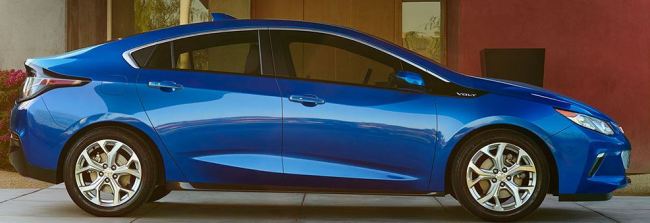Renault Samsung Motors said Monday the company would introduce battery-powered ultrasmall electric vehicle Twizy to Korea in the near future, starting with test-drives on domestic roads in the first half of the year.
The management is discussing regulation revisions with the Korean government to pave the way for the mini car, which has sold 15,000 units in Europe since its launch in 2012.
The company expects to sell 1,000 units of EVs in Korea this year, and more if Twizy rolls out for sale, insiders say.
“In a few weeks we will be able to tell you about the progress (of the negotiation) such as the pilot program,” said Renault Samsung Motors president Francois Provo at a press conference held to mark the 28th International Electric Vehicle Symposium and Exhibition at KINTEX in Ilsan, Gyeonggi Province. The two-passenger Twizy is one-third the size of ordinary cars but is known to have 55 liters of trunk space and is branded “micro urban mobility” by Renault.
 |
| Renault Samsung’s ultrasmall EV Twizy (Yonhap) |
Gilles Normand, senior vice president and chairman of Renault’s Asia-Pacific region, noted that Twizy is the perfect car for Korea.
“Twizy has disruptive concepts. It is safe, reasonably priced ― the price starts from 6,990 euros in Europe, exclusive of battery pack that is leased for a monthly fee ― and is zero-emission. Globally, governments are renewing their regulations in order to accept the vehicle,” he said. He also acknowledged the Korean local government’s subsidies for EVs have become a great opportunity for EV makers such as Renault to make inroads in the market.
Normand noted that the sales of Twizy could be a boon for Renault Samsung, which has a plant in Busan manufacturing and exporting 3,000 units of the company’s electric vehicle ― the SM3 Z.E. “There is nothing specific about the production plan (for Twizy at Busan plant) but if there is a certain volume secured, why not (manufacture here)?” he said.
French-based Renault Group aligned with Japanese carmaker Nissan for its EV business. The companies have invested more than 4 billion euros to the sector since 2011 and have more than 250,000 units on the roads around the globe, accounting for half of the EVs sold worldwide.
Normand said Renault is taking an aggressive approach to the EV.
 |
| GM Korea’s next-generation EV Volt (GM) |
While not ruling out the positive effects of the current “eco-friendly cars” such as hybrid or plug-in hybrid, Renault’s ultimate goal is to go zero-emission, he said. “I find those cars as corridor to zero-emission, but they are not zero-emission, our fundamental goal,” he said.
Normand visited Korea to give a keynote speech on the French group’s EV strategy at the EVS28. Under the theme “e-Motional Technology for Humans,” 150 global EV-related companies are set to showcase their products, ranging from EVs to electric bikes and auto parts at 405 pavilions through Wednesday.
Also at the event, GM Korea announced it would launch the next-generation plug-in hybrid Volt in Korea next year. The company claimed the car to be a de-facto all-electric vehicle.
“Drivers will use all-electric mode for 90 percent of the driving,” said GM Korea president and CEO Sergio Rocha.
By Bae Ji-sook (baejisook@heraldcorp.com)



